23
Dec
Beyond Pesticides Wishes You A Healthy New Year

**We’re taking a break for the holidays. Daily News will be back on January 3, 2022**
(Beyond Pesticides, December 23, 2021) We at Beyond Pesticides wish our members, supporters, and collaborators all the best for the holiday season and new year. We look forward to working with you in the new year to meet the serious environmental and public health challenges with truly organic solutions.
Our accomplishments are your victories. We are seeing the outcomes in communities across the country—the adoption of organic land management policies and practices that eliminate toxic pesticides, protect children, pets, and families, and protect the local ecology.
With your support of Beyond Pesticides, we strive to reverse the destructive environmental and public health path that we’re on and advance the adoption of organic practices and policies that respect life.
To view our accomplishments, see Beyond Pesticides’ 2021 Year in Review. Beyond Pesticides’ program supports a clear message: End toxic pesticide use and embrace organic practices and policies that respect the power of nature to heal— in the face of devastating and destructive toxic chemical-dependency. This past year has again elevated important public discourse on the threats that pesticides pose to health and the environment.
Table of Contents:
- Celebrating 40 Years (Vision; Awards)
- Campaigns and Fundraisers
- Elevated Risks (Disproportionate; Biodiversity)
- Solutions (Organic; Community: Action of the Week)
- Transformative Framework (Chemical Ban; Pesticides and You Journal; Pesticide Forum)
- Science & Advocacy (New Webpages; Regulatory Action/Policies; Website Database and Resources)
- Lawsuits & Settlements
- The Future
- Thank YOU! Give TODAY.
For over four decades, Beyond Pesticides has worked with tens of thousands of people in the United States and globally to fight for healthy air, water, land, and food. We forge ties with nonprofit and volunteer organizations, local governments, and forward-thinking corporations. We work with people who understand the importance of vibrant ecosystems on which all life depends. Our collaborators bridge all affected communities—from urban to rural, parents and youth to medical practitioners, scientists to policymakers, farmworkers to farmers, and gardeners to landscapers.
Our Vision. Beyond Pesticides shares the vision of people and communities in seeking to ensure a future that protects health and sustains life. We are facing existential crises—the climate crisis, biodiversity collapse, and severe public health threats—from cancer to neurological, reproductive, and endocrine system effects, including brain and behavioral impacts. To reverse these threats, we advance model organic solutions that eliminate billions of pounds of fossil-fuel-based pesticides and synthetic fertilizers and nurture biological systems that take dangerous pollutants out of our environment.
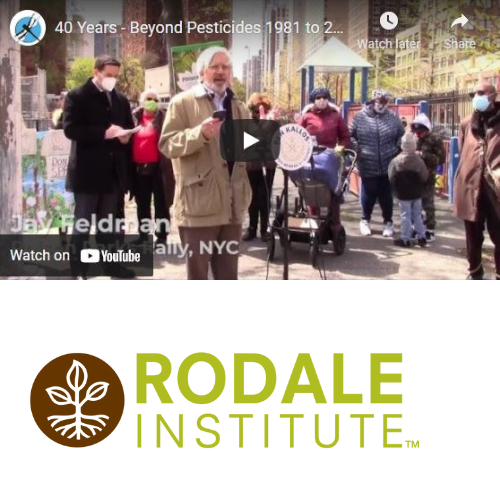 Awards: Organic Pioneers Award ceremony, Rodale Institute. This year, our founder and executive director, Jay Feldman, was awarded the Rodale Institute’s Organic Pioneer Award, an honor that is shared by a long line of farmers, scientists, and activists. With a 40-year history of working with communities nationwide to educate on toxic hazards and organic solutions (policies and practices), addressing agricultural, lawn and landscape management practices that maintain ecological balance, enhance biodiversity and eliminate toxic chemical use, Jay has successfully fought to remove from the market hazardous pesticides and helped draft pivotal local, state and federal organic law. In 2010, he was appointed to the National Organic Standards Board where he served as chair of the Crops Committee. Jay is a past chair and board member of Earth Share, and currently serves on the standards board of the Real Organic Project and the executive committee of the National Organic Coalition. Prior to his founding Beyond Pesticides in 1981, he served as the Health Programs Director of Rural America, an advocacy group for rural areas and small towns. (See a summary of his remarks below.) Please watch this 3½ minute video reflection from Jay Feldman: 40 Years Beyond Pesticides.)
Awards: Organic Pioneers Award ceremony, Rodale Institute. This year, our founder and executive director, Jay Feldman, was awarded the Rodale Institute’s Organic Pioneer Award, an honor that is shared by a long line of farmers, scientists, and activists. With a 40-year history of working with communities nationwide to educate on toxic hazards and organic solutions (policies and practices), addressing agricultural, lawn and landscape management practices that maintain ecological balance, enhance biodiversity and eliminate toxic chemical use, Jay has successfully fought to remove from the market hazardous pesticides and helped draft pivotal local, state and federal organic law. In 2010, he was appointed to the National Organic Standards Board where he served as chair of the Crops Committee. Jay is a past chair and board member of Earth Share, and currently serves on the standards board of the Real Organic Project and the executive committee of the National Organic Coalition. Prior to his founding Beyond Pesticides in 1981, he served as the Health Programs Director of Rural America, an advocacy group for rural areas and small towns. (See a summary of his remarks below.) Please watch this 3½ minute video reflection from Jay Feldman: 40 Years Beyond Pesticides.)
Beyond Pesticides thanks all of our donors and supporters for their contributions over the year. Without your help, our mission would not be possible.
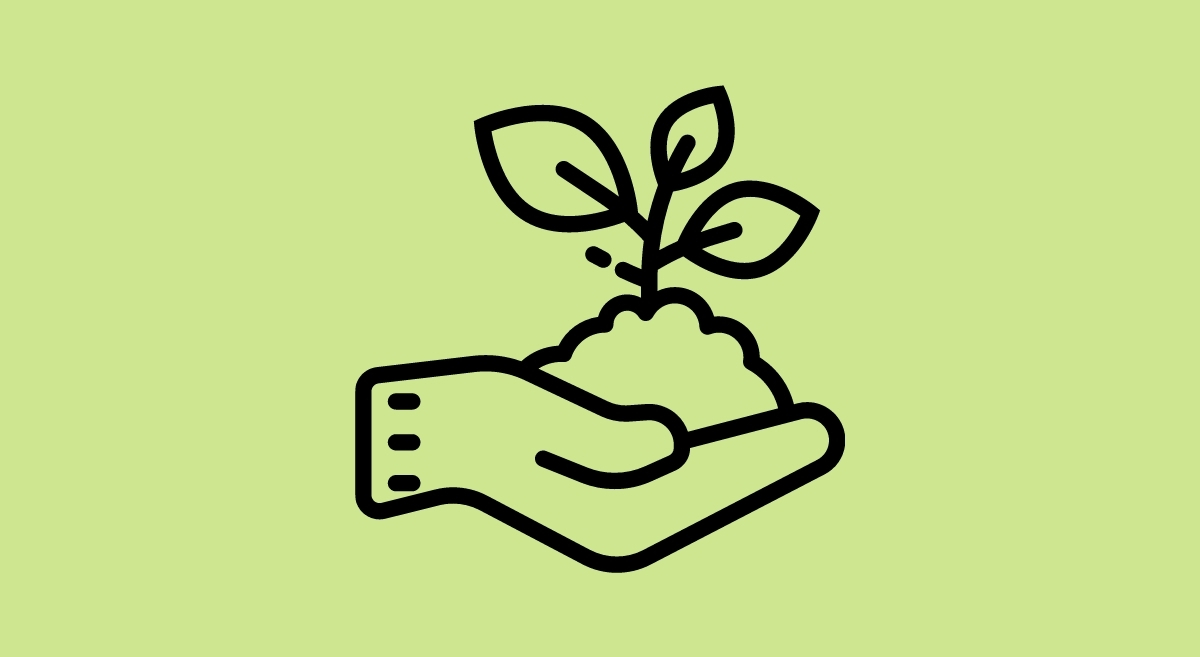
Members and Donors. It’s a fact. Your support makes our work possible. We provide up-to-the-minute information about the health and environmental hazards of pesticides, pesticide regulation and policy, pesticide alternatives, and cutting-edge science—free of charge to the public. We can’t do it without the generosity of people like you. Your donation helps us have the resources we need to continue our important work to protect people and the planet. Please donate a gift today!
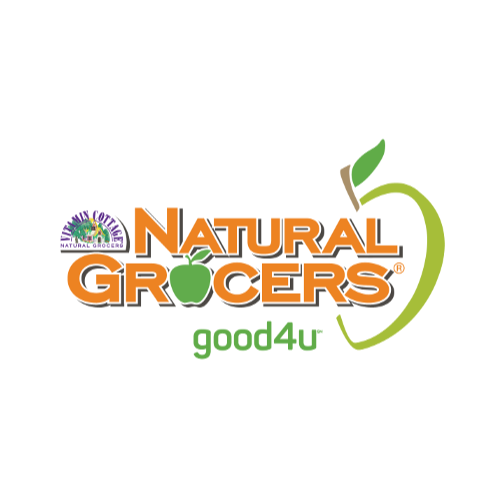 Natural Grocers Campaign. We are moving forward with a collaboration with Natural Grocers, which operates in 161 stores in 20 western, southwestern, and Midwest states. For the second year, Natural Grocers is helping to underwrite this work with fundraising campaigns in the stores. This collaboration offers Beyond Pesticides an expanded opportunity to not only raise the resources for our cornerstone work to advance a transition to organic land management nationwide but to leverage the reach of a local retail market as a point of education and outreach.
Natural Grocers Campaign. We are moving forward with a collaboration with Natural Grocers, which operates in 161 stores in 20 western, southwestern, and Midwest states. For the second year, Natural Grocers is helping to underwrite this work with fundraising campaigns in the stores. This collaboration offers Beyond Pesticides an expanded opportunity to not only raise the resources for our cornerstone work to advance a transition to organic land management nationwide but to leverage the reach of a local retail market as a point of education and outreach.
After years of keeping the training program close to our vest, our partnership with Natural Grocers, and our work with Stonyfield Organic, and our desire to highlight and grow the training program led to the launching of a new webpage–Parks for a Sustainable Future–providing an overview of our training program and an opportunity for advocates to engage. The webpage includes the ‘nuts and bolts’ process we follow to implement the project, financial arrangements, and background on the organic approach. These resources will be plowed back into our community work to grow the transition to organic land management!
ELEVATING SCIENCE THAT CALLS FOR URGENT NEED TO ACT
From a public health and environmental protection perspective, these are challenging times. Amid the attack on institutions and laws established to protect children, families, and the environment under the previous federal administration, with many actions and positions still to be reversed, there is an incredibly positive groundswell of activity seeking to achieve these protections in communities across the U.S. We are inspired by the level of effective advocacy and changes in practices that are moving forward nationwide.
Disproportionate Risks
Beyond Pesticides continued to work closely with The Black Institute, as we successfully pushed forward with a New York City ordinance to ban toxic pesticides on the city’s parks and playgrounds. The legislation to allow only pest management materials permitted in organic land management under federal law was passed on Earth Day 2021. Before passage that day, we held a press conference with the sponsor of the bill on Earth Day in a park in front of a public housing project. This collaboration highlights the importance of calling out environmental racism and the disproportionate impact that pesticide use has on people of color communities. In addition, the vast majority of city workers handling and applying pesticides are people of color, resulting in higher exposure patterns and risk of illness. We published a piece, “Stopping Systemic Environmental Racism in New York City Parks,” which is a review of The Black Institute’s report, Poison Parks.
Biodiversity Risks
Why We Give Focus to Biodiversity. A vast amount of research demonstrates the importance of protecting complex biological communities. The interrelationship and interdependency of organisms are critical to ecological balance and human survival. With broad-spectrum pesticide use and indiscriminate poisoning with systemic pesticides, an ecological imbalance is created, sacrificing the benefits of nature and escalating pest problems.
Our work highlights organic farming/ gardening and soil as inextricably linked. As discussed in a workshop at our National Forum by author and research scientist at the School of Integrative Biology at the University of Illinois, James Nardi, PhD, the macro- and microorganisms in healthy soils interact in a symbiotic manner with plant roots, strengthening plants, enabling them to resist diseases, and facilitating water and mineral uptake. In alignment with Dr. Nardi’s work, we see the “wisdom of the weeds”—what we can learn from them, and their contributions, including preventing erosion; conserving nutrients; building soil structure, organic matter, and mineral content; supporting soil biology; sequestering carbon; and encouraging biodiversity.
PUTTING IN PLACE EFFECTIVE SOLUTIONS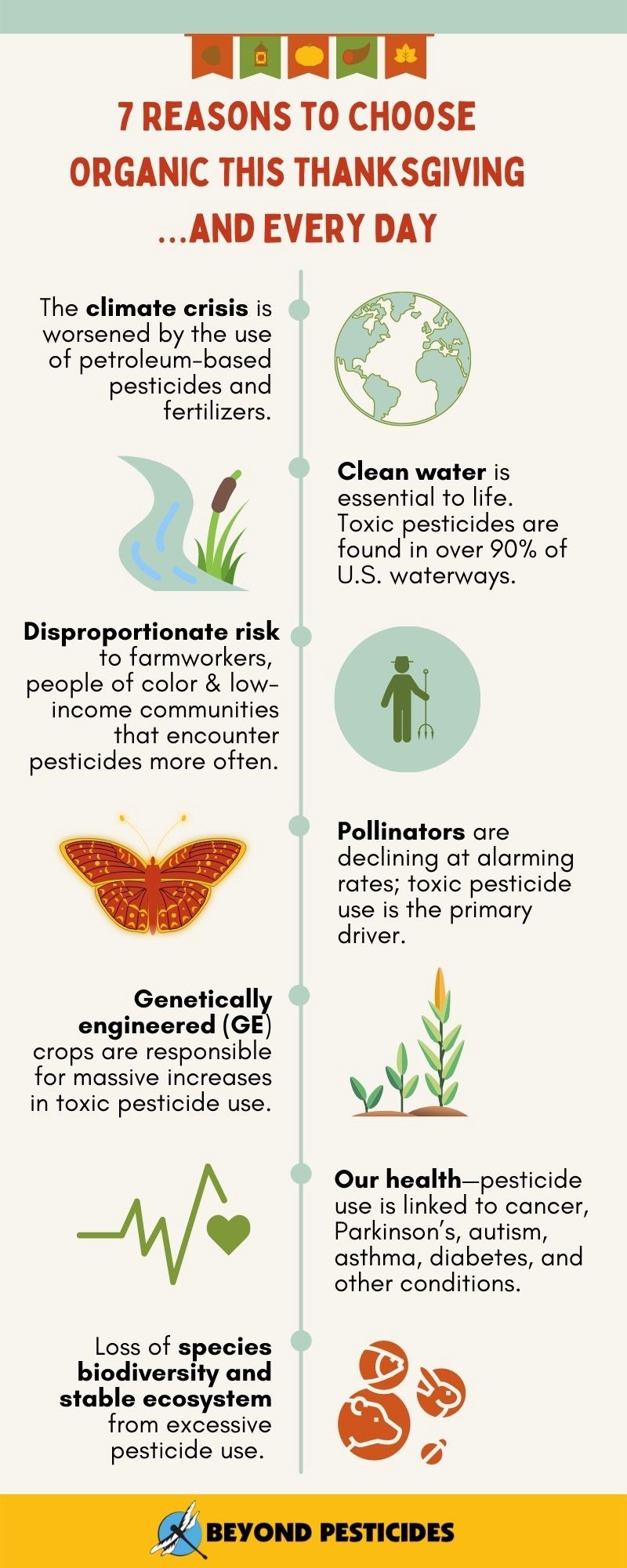
Outdated chemical-intensive practices are tied to the belief that parks, playing fields, home lawns, and agriculture require toxic chemicals and synthetic fertilizers to meet expectations. So, an approach that recognizes the importance of soil biology in cycling nutrients naturally to feed plants is often new to many land managers who have not evaluated and nurtured the web of microorganisms living in the soil. This attention to the soil systems has been foundational to the success of organic agriculture worldwide. Those critics, who often have a vested economic interest or history in pesticide use and proclaim that organic does not work, are, in effect, challenging the underlying principles of soil management that have enabled the exponential growth of the organic agricultural sector— now a $60 billion industry and the fastest-growing part of the agricultural economy.
Keeping Organic Strong
Organic consumers and farmers have invested in the notion that we care not only about land stewardship and what we feed our children and families, but stopping farmworker exposure to hazardous materials and ending the hazards to the fenceline communities where the toxic chemicals used in conventional agriculture are produced. The organic law, of course, requires the National Organic Standards Board (NOSB) to consider the cradle-to-grave effects of materials when protecting against adverse effects. We comment on all the issues before the NOSB, which affect the integrity of organic standards and the USDA organic label.
National Organic Standards Board (NOSB). The 15-member board, consisting of four farmers, three environmentalists, three consumers, two food processors, and one retailer, scientist, and certifying agent, votes to allow or prohibit substances and practices in certified organic food and farming. The NOSB acts as a sounding board within the federal government for the organic community, as it considers input from you, the public—the concerned citizens and consumers upon whom organic integrity depends. Our Keeping Organic Strong webpage provides the public with Beyond Pesticides’ comments on the issues before the board and instructs people on how to make their voices heard as the NOSB deliberates.
Stonyfield PlayFree and Organic Transition Program. As a result of a large influx of new training sites from the Stonyfield PlayFree and Organic Community Land Management Program, staff have expanded the reach of its community-based work throughout the country. We evaluate management practices and soil biology and then develop a plan for organic practices and compatible products. The program offers training of city and private landscapers and provides ongoing consultative services to ensure successful implementation of the plan. We partner with community organizations to form a collaborative effort to keep the program on track to protect public health and the local ecology.
Creating model communities
We are well-positioned to effect changes in communities that serve as a model for other communities. We continue to develop the informational tools that support change agents, whether they are advocates or elected officials. We are also able to provide the technical skills to land managers, which ensure effective implementation of policies and plans for sustainable and organic land management.
The Maui Food Hub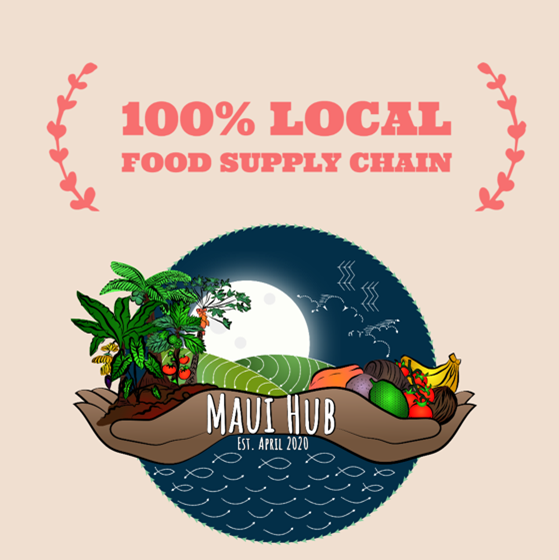
The Maui (food) Hub started as a partnership between Beyond Pesticides, Common Ground Collective and the Haleakala Chapter of the Hawai’i Farmers Union. It was put together quickly as a response to the challenges facing local farmers due to the COVI-19 crisis, but continues to expand to support the long-term success of our local organic farmers and the gross increase in the amount of organic agriculture on Maui. The Maui Hub recently became an independent 501(c)3 organization, and our Hawaii director of organic land management is the Vice-President of the Board of Directors. As the Maui Hub grows, Beyond Pesticides is committed to ensuring it stays true to its mission to support small organic farmers expand production, and compete against corporate chemical intensive agricultural interests in our local market.
ACTION OF THE WEEK
The Action of the Week (AOTW) provides our network with one concrete action that can be taken each week to have our collective voice heard to stop governmental actions that adversely affect public, worker, and environmental health, increase overall pesticide use or undermine the advancement of organic, sustainable, and regenerative practices and policies. With almost 18,000 subscribers, the actions generate between 2,000 and 4,000+ participants weekly.
The top five AOTWs with the most contributions include:
- Tell EPA Not to Allow Unnecessary Pesticide Risks (7/22/2021)
- Tell USDA to Ensure that Organic Farming Protects Ecosystems (8/02/2021)
- Biden EPA Must Hold Pesticide Manufacturers Accountable for Poisoning (8/09/2021)
- Tell EPA to Finish the Job in Banning Chlorpyrifos (8/29/2021)
- Tell EPA That the Failed Pesticide Program Needs a New Start (11/06/2021)
Providing a Framework for Advancing Transformative Change
Beyond Pesticides issues unique reports to support local activism to move changes in practices and policies that eliminate pesticide use. With this information and the model policy that we have created, local people nationwide have successfully moved change.
Beyond Pesticides is about building a groundswell of action that drives the necessary changes—changes that take place in people’s homes and gardens, in their purchasing decisions, in their local communities, park districts, school districts, and in management decisions throughout the community. The models we establish in partnership with local communities can be replicated in communities across the country. And since we will not achieve a sustainable, socially just society and world by simply banning or restricting one chemical after the other, we are advancing systemic changes that start at the community level, but intersect with state, national, and international policy and corporate accountability.
Local Chemical Bans. Campaigns to ban specific chemicals are still popular at the local and in some cases the state level. While it is an entry point for bringing public attention to the pesticide problem, it can, if not carefully orchestrated, leave the public impression that the pesticide problem is fixed, while we strategize to change underlying practices, not substitute other toxic chemicals. In this context, we have assisted dozens of communities across the country interested in restricting the hazardous herbicide glyphosate (Roundup), and neonicotinoid insecticides tied to pollinator decline. For example, New York State specifically banned glyphosate in state parks last year, effective December 31, 2021, with no apparent change in practices, which is why we advocate for a holistic approach.
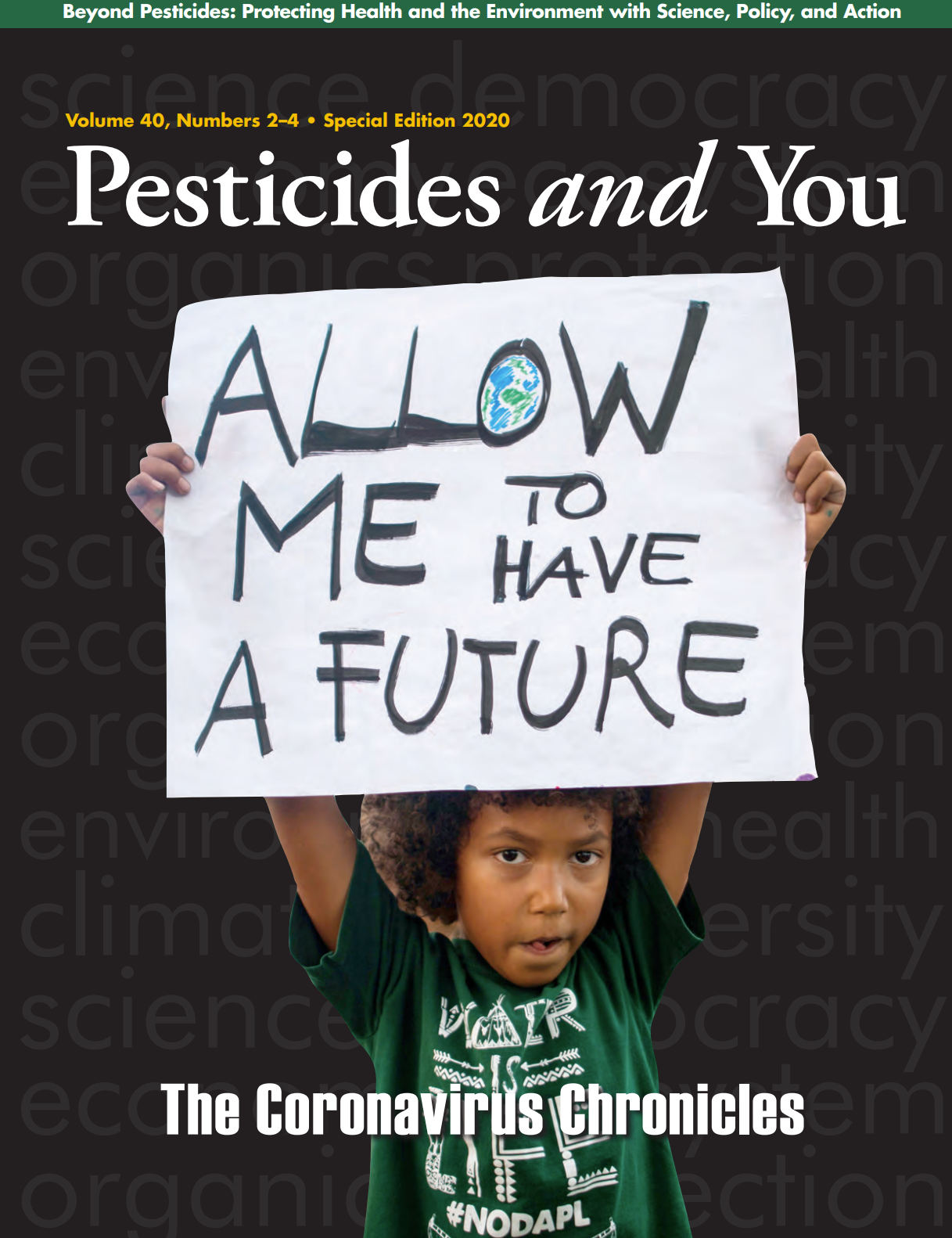 Pesticides and You. We published The Corona Virus Chronicles, a 72-page issue of Pesticides and You that conveys issues that have emerged during the pandemic. These issues are directly relevant to our mission and the transition as a society away from toxic chemical dependency. The breadth and depth of the issues span specific hazardous materials (such as those in disinfectants, despite the availability of alternatives), new food systems that support local and organic farmers (food hubs), the importance of sound science to decision-making, and addressing disproportionate risk to people of color communities (essential workers, farmworkers, and landscapers). Additionally, with the new administration, we put together strategies and issues of importance for federal agencies. Whether addressing agriculture or the management of parks, playing fields, rights-of-way, and residential areas, policies that allow continued reliance on synthetic toxic pesticide promote ecological imbalances that are at the heart of the escalating deterioration of ecosystems and life that depends on them. The policies and practices that we have advanced address this. In addition, to this end and because the interrelationship and interdependency of organisms is critical to ecological balance and human survival, we continued our series on tracking biodiversity.
Pesticides and You. We published The Corona Virus Chronicles, a 72-page issue of Pesticides and You that conveys issues that have emerged during the pandemic. These issues are directly relevant to our mission and the transition as a society away from toxic chemical dependency. The breadth and depth of the issues span specific hazardous materials (such as those in disinfectants, despite the availability of alternatives), new food systems that support local and organic farmers (food hubs), the importance of sound science to decision-making, and addressing disproportionate risk to people of color communities (essential workers, farmworkers, and landscapers). Additionally, with the new administration, we put together strategies and issues of importance for federal agencies. Whether addressing agriculture or the management of parks, playing fields, rights-of-way, and residential areas, policies that allow continued reliance on synthetic toxic pesticide promote ecological imbalances that are at the heart of the escalating deterioration of ecosystems and life that depends on them. The policies and practices that we have advanced address this. In addition, to this end and because the interrelationship and interdependency of organisms is critical to ecological balance and human survival, we continued our series on tracking biodiversity.
 38th Natural Pesticide Forum. Cultivating Healthy Communities: Confronting health threats, climate disasters, and biodiversity collapse with a toxic-free future, was co-convened by Beyond Pesticides and the Institute for Exposomic Research, the Icahn School of Medicine at Mt. Sinai. The affiliation with a medical institution that understands and teaches the relationship between toxic chemical exposure, environmental hazards, and public health is critical to solving the existential threats associated with toxic pesticide use. The medical institution’s involvement with the conference is not only important in bringing medical practitioners and scientists to the discussion, but it serves as a model for other medical institutions to engage with the issues. Over four weeks in May-June 2021, this Forum brought together over 600 people and organizations from 15 countries and is now being offered for free on the conference platform through our website. Look forward to our 2022 conference.
38th Natural Pesticide Forum. Cultivating Healthy Communities: Confronting health threats, climate disasters, and biodiversity collapse with a toxic-free future, was co-convened by Beyond Pesticides and the Institute for Exposomic Research, the Icahn School of Medicine at Mt. Sinai. The affiliation with a medical institution that understands and teaches the relationship between toxic chemical exposure, environmental hazards, and public health is critical to solving the existential threats associated with toxic pesticide use. The medical institution’s involvement with the conference is not only important in bringing medical practitioners and scientists to the discussion, but it serves as a model for other medical institutions to engage with the issues. Over four weeks in May-June 2021, this Forum brought together over 600 people and organizations from 15 countries and is now being offered for free on the conference platform through our website. Look forward to our 2022 conference.
Check out the 2021 Forum session and listen to the amazing speakers.
Beyond Pesticides’ website serves as a hub for a range of regulatory and policy advocacy, information services to people nationwide and around the globe, networking through coalition work and the convening of our National Forum, and on-site training on organic land management in communities that are collaborating with Beyond Pesticides on demonstration parks and playing fields.
New and Updated Webpages
The information we provide performs the unique function of providing hands-on information and strategy. We are working daily with grassroots people, volunteer and nonprofit organizations, and those in policy, decision-making, and land and facilities management positions to address issues on the hazards of pesticide use, safe and organic alternative strategies that eliminate toxic pesticides, and local and state policies that embrace the adoption of ecological approaches to land and building management.
Some of our most recently added or updated (*) webpages include:
- Commercial Herbicide Analysis
- 40 Common Chemicals Used on Lawns and Landscapes
- Gateway on Pesticide Hazards and Safe Pest Management*
- Parks for a Sustainable Future
- Safer Disinfectants and Sanitizers*
Regulatory Action and Comments
We create a public record on scientific decisions that are being undermined by poor public policy that allows hazardous pesticide use, despite the availability of alternatives. We commented on key issues on paraquat and Parkinson’s disease, the environmental impact of herbicide use in Lake Tahoe and broader implications for aquatic weed management, neonicotinoid insecticide effects to pollinators and ecosystems, EPA interim decisions and mitigation proposals on widely used synthetic pyrethroid insecticides, among others. While we submitted comments on regulatory issues related to highly toxic pesticides such as glyphosate/Roundup, paraquat, atrazine, pentachlorophenol and antibiotics, we use the opportunity to highlight the deficiency of regulating one chemical at a time. We continue our lawsuits against companies that engage in fraudulent labeling that misleads consumers on safety and environmental protection, suing Sargento food company for their misleading labeling of no antibiotic use. This is a transformative moment when we are working to shift society, starting with our communities and local decision-makers and individuals, to eliminate toxic fossil-fuel-based pesticides and fertilizers.
Information Resources
Resources Page. The resources page is a user-friendly information tool, displaying easy-to-read boxes highlighting the featured resources under our “Resources” tab, with descriptions. This page allows users to navigate through the plethora of information on our website as the box description can direct users to the resources they are looking for. The descriptions are especially helpful as users will now spend less time searching through our website to find the location of specific information. In addition, the resources page may also encourage users to explore the site further, sparking curiosity in the information we offer. New resources include easy access to the pesticide-free policies/communities across the U.S., as well as a link to the 40 most used lawn chemicals webpage.
Daily News Blog. These information-rich articles are posted every business day on the Beyond Pesticides website. Between regular readers and traffic driven by google news results and social media, the blog has tremendous reach. In fact, thanks to YOU, the total number of reads this year surpassed 355,000, with an average of over 2,500 readers per blog post.
Top 5 Daily News of 2021
- Danone (Horizon Organic) Threatens the Backbone of Organic Dairy—Family Farms and Their Consumer Supporters (16,455)
- Proposed Bayer/Monsanto Settlement for Roundup Victims Offers Payments and Challenges(12,003)
- Roundup Shown to Kill Bees—But Not How You Might Expect(10,740)
- Kids Who Eat Organic Food Score Higher on Cognitive Tests, Study Finds. (8,841)
- Glyphosate-Based Herbicides and Sustainable Agriculture Do Not Mix!(8,416)
ManageSafe Database. Our hands-on information through ManageSafe, our database of practical solutions to pest issues, is a central clearinghouse of information on eliminating hazardous pesticides in land and building management. Our neighbor-to-neighbor program distributed 400 Pesticide-Free Zone signs (ladybug, bee, and organic landscape) and in 33 states, the District of Columbia, and four Canadian provinces, 1,500 doorknob hangers on safe lawns and mosquito management in 19 states, and the District of Columbia.
Map of U.S. Pesticide Reform Policies. Beyond Pesticides’ map of U.S. Pesticide Reform Policies now includes 18 pesticide-free park policies, 47 with restrictions that protect pollinators, 103 that apply to public spaces, and 27 that extend restrictions to private land, and has been viewed 74,100 times.
Pesticide-Induced Diseases Database (PIDD). Beyond Pesticides updated the website to incorporate more recent scientific studies to the Pesticide-Induced Diseases Database (PIDD). Many of the studies available in PIDD challenge the effectiveness of risk‐assessment‐based regulation which is intended to manage adverse disease outcomes. We developed a relational search engine to enable a search for multiple diseases, some of which can be co-occurring. This search engine is helpful to medical professionals, academic scholars, lawncare/landscape workers, and laypeople alike, as its ease of use allows users to find over 1,174 studies related to pesticide exposure and over 75+ diseases. Additionally, the “and”/“or” function of the search engine allows users to find articles related to pesticide exposure and multiple diseases at once.
Pesticide Gateway. The Gateway is an expanding database of over 300 pesticides containing information about specific pesticide environmental and health effects, regulatory action, and uses. Recent additions to the Gateway include a section on how to find the active ingredients on the label. We occasionally receive information requests regarding specific pesticide products. However, with over 20,000 registered pesticides, it’s nearly impossible to include all products. Thus, the section encourages users to identify the active ingredient in pesticide products. The Gateway provides valuable information about pesticides that anyone can access.
Safer Disinfectants and Sanitizers. With the increase in the use of sanitizers and disinfectants during Covid-19, we continued to build out our Covid-19 Pandemic webpages, including up-to-date information on safe hand sanitizers and disinfectants, and a Q&A style factsheet on Answering Questions about Toxic Sanitizers and Disinfectants. We produced a factsheet, on the hazards of quaternary ammonium compounds, also known as “quats” or “QACs,” which are in many cleansers and increase the risk of asthma and adverse reproductive effects.
Access the information on disinfectants and sanitizers: Disinfectants and Sanitizers to Protect Against COVID-19.
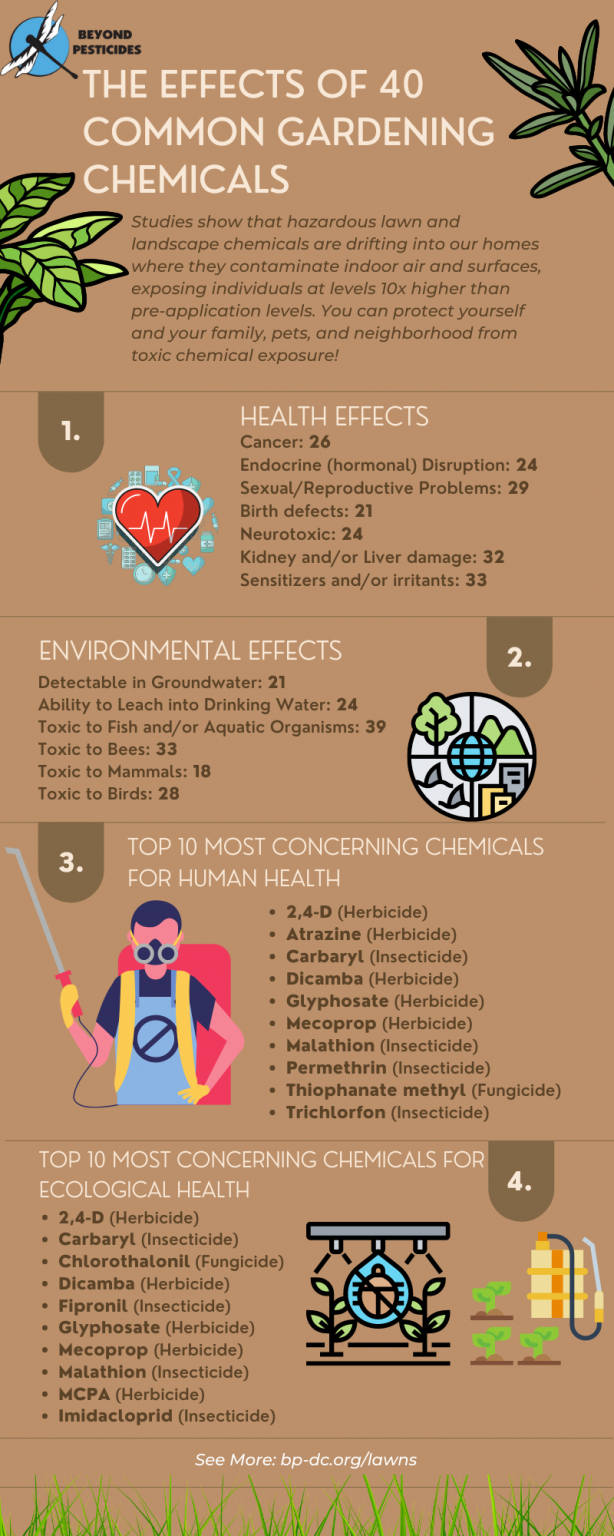 40 Common Chemicals Used on Lawns and Landscapes. Beyond Pesticides recently launched the 40 Common Lawn Pesticides factsheets for both the health and environmental effect of the most common pesticides used on lawns and landscape, with an accompanying webpage. (This updates our popular 30 Common Lawn Pesticides factsheet.) The factsheets include information from the updated pesticide data usage for EPA (2020), as well as other agencies, institution, or organizational research. An infographic pamphlet was also made to give a brief overview of the findings, including the top 10 most concerning chemicals for ecological and human health. The charts show, based on government sources, that the majority of pesticides in wide use can cause cancer, neurological and respiratory effects, reproductive harm and bird defects, and are toxic to waterways, wildlife, bees and pollinators, and birds and fish.
40 Common Chemicals Used on Lawns and Landscapes. Beyond Pesticides recently launched the 40 Common Lawn Pesticides factsheets for both the health and environmental effect of the most common pesticides used on lawns and landscape, with an accompanying webpage. (This updates our popular 30 Common Lawn Pesticides factsheet.) The factsheets include information from the updated pesticide data usage for EPA (2020), as well as other agencies, institution, or organizational research. An infographic pamphlet was also made to give a brief overview of the findings, including the top 10 most concerning chemicals for ecological and human health. The charts show, based on government sources, that the majority of pesticides in wide use can cause cancer, neurological and respiratory effects, reproductive harm and bird defects, and are toxic to waterways, wildlife, bees and pollinators, and birds and fish.
Access the Full Factsheets and Infographic: 40 Common Lawn and Landscape Chemicals.
Consumer Herbicide Analysis. Beyond Pesticides and Friends of the Earth (FOE) collaborated to provide an easy-to-read spreadsheet detailing health hazards associated with weed killers commonly found at the most popular home and garden retailers, Home Depot and Lowe’s. This analysis highlights the adverse health and environmental effects of widely available toxic pesticides, while encouraging retailers to expand on—and consumers to use—safer, least/nontoxic pesticide products. We analyzed chemical components in over 91 different herbicides. Out of the 91 products, only 28 are classifiable as least toxic/organic.
Access the full analysis: Herbicide Analysis.
Many Shades of Green Podcast. The environmentally conscious podcast “The Many Shades of Green” interviewed Beyond Pesticides’ Science and Regulatory Manager on the health and environmental impacts of pesticides that the general population may not be aware of.
Access the full podcast interview: Beyond Pesticides with Guest Akayla Bracey – The Many Shades of Green.
Happy Sprout article: “The pesticides market is now worth $11 billion; that’s a huge problem.” Provided wide ranging interview with Happy Sprout website about the growth of the pesticide industry, focused on what Beyond Pesticide does, pollinator protection, biodiversity and food security, climate change, public health, safer alternatives to toxic pesticides, what folks can do.
Access the full article: Toxic Pesticide Use Harms Public Health and the Environment | HappySprout.
Beyond Pesticides sues companies—with legal assistance from Richman Law and Policy—that mislead the public through their labeling and advertising. We have successfully sued, for example, TruGreen and General Mills, for including false statements about safety or production practices. This year Beyond Pesticides sued Sargento for falsely claiming that no antibiotics are used in the production of their cheese products. A settlement resulted in Sargento changing its labeling claim. Beyond Pesticides joined with a coalition of public interest groups to sue the U.S. Environmental Protection Agency (EPA) for its approval of the medically important antibiotic streptomycin for use on citrus trees. This is a transformative moment when we are working to shift society, starting with our communities and local decision-makers and individuals, to eliminate toxic fossil-fuel-based pesticides and fertilizers.
See news story. Read the full case: BP v. Sargento
 The Case Against ExxonMobil [Continued]. Our case against Exxon-Mobil for the company’s destructive fossil fuel-related impacts on climate (including their contribution to petroleum-based fertilizer production and use) was put on hold as a result of emergency legislation passed in the District of Columbia that preempts cases where the District’s Attorney General is also litigating on the issue. The AG is suing Exxon-Mobil, and while the case does not have the exact focus of our litigation, it is close enough and could encompass our claim, enabling them to exercise preemption. Exxon and tried and failed several times to get the case removed to federal court from the DC Superior Court, where consumer protection provides us with standing to challenge misleading claims.
The Case Against ExxonMobil [Continued]. Our case against Exxon-Mobil for the company’s destructive fossil fuel-related impacts on climate (including their contribution to petroleum-based fertilizer production and use) was put on hold as a result of emergency legislation passed in the District of Columbia that preempts cases where the District’s Attorney General is also litigating on the issue. The AG is suing Exxon-Mobil, and while the case does not have the exact focus of our litigation, it is close enough and could encompass our claim, enabling them to exercise preemption. Exxon and tried and failed several times to get the case removed to federal court from the DC Superior Court, where consumer protection provides us with standing to challenge misleading claims.
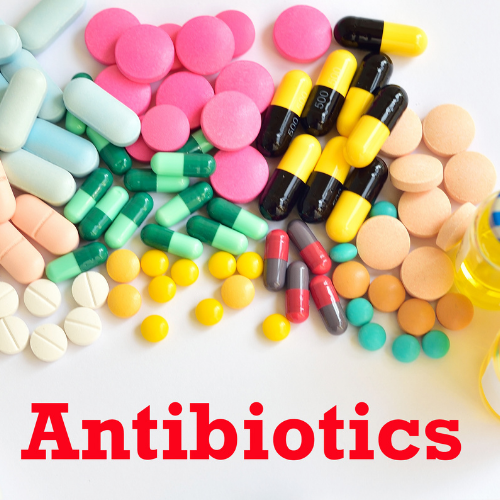
Lawsuit Against EPA for Registration of Antibiotic of Streptomycin for Use in Citrus The Case Against EPA. Beyond Pesticides joined a lawsuit in March with NRDC, Earthjustice, Center for Biological Diversity, and others against EPA for its registration of streptomycin for use in citrus. The litigation challenges EPA’s final registration decision for the new uses of streptomycin sulfate on citrus crops. The litigation brings claims under both the Federal Insecticide, Fungicide, and Rodenticide Act (FIFRA) and the Endangered Species Act (ESA). The lawyers are continuing to evaluate potential claims, but expect to make at least the following arguments. Under ESA, EPA failed to consult with the U.S. Fish and Wildlife Service, despite EPA’s finding that registration of streptomycin as a pesticide may affect threatened or endangered mammals; and EPA failed to determine whether the registration may also affect the critical habitat of these species.
The challenges ahead require that we redouble our efforts. Beyond Pesticides’ collaboration with people and communities in every state is providing the energy and enthusiasm to embrace the changes necessary to stop toxic pesticide use and embrace organic practices and policies. We know it can be done if we join together to protect health and the environment with science, policy, and activism. The solutions are within our reach. We look forward to working with you—with the required sense of urgency—to ensure that change happens.

We would like to give special thanks to you, our Daily News Blog readers. Daily News and Action of the Week is taking a break during the holiday season. Daily News and Action of the Week will be back on January 3, 2021. In the meantime, please consider a gift to Beyond Pesticides—we can’t do our work without you! See you in 2022! Have a healthy holiday season and new year.










